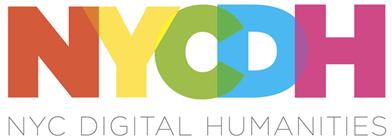Public
| Name | Arnaud Kurze |
| Affiliation | |
| Title | Assistant Professor of Justice Studies |
| Bio | Dr. Arnaud Kurze Arnaud Kurze is Assistant Professor of Justice Studies at Montclair University. His research focuses on human rights and post-conflict and post-authoritarian justice. Drawing on political sociology, his current research project explores youth activism in post-revolutionary Tunisia using mixed methods and big data. He regularly contributes analyses and op-ed articles online for think tanks and other institutions. He received numerous awards and fellowships from many progressive institutions, including the Woodrow Wilson Center. |
| Interests | transitional justice, human rights, social movements, social media, data visualization |
| Projects | Youth Activism, Art and Transitional Justice: Emerging Spaces of Memory after the Jasmine Revolution This study explores the creation of alternative transitional justice spaces in post-conflict contexts, particularly concentrating on the role of art and the impact of social movements to address human rights abuses. Drawing from post-authoritarian Tunisia, it scrutinizes the work of contemporary youth activists and artists to deal with the past and foster sociopolitical change. Although these vanguard protesters provoked the overthrow of President Zine El Abdine Ben Ali in 2011, the power vacuum was quickly filled by old elites. The exclusion of young revolutionaries from political decision-making led to unprecedented forms of mobilization to account for repression and injustice under the ancien regime. During this process, art served as a medium to create these innovative spaces of deliberation. The study builds on Foucault’s concept of heterotopia – spaces of otherness that are simultaneously physical and mental – to fuel new insights on the challenges associated with generating spaces of memory and accountability. It is based on over three dozen in-depth narrative interviews with local actors and content analysis of art campaigns and collective action. The findings demonstrate that the emergence of this new fragile spatiality is nevertheless contingent on contested visions and memories of Tunisia’s secularist and Islamist political traditions. Human Rights, Art & Memory This project focuses on a cross regional analysis to explore how different social actors address political violence in the aftermath of atrocities relying on art and how their actions impact society. Some of the questions posed include: 1) How do societies account for wrongdoings and create a collective memory? 2) Why are transition governments and other actors keen on creating their own — often conflicting — narratives about the past? 3) What role do international actors, such as non-profit organizations or states, play in this context? In recent years, the use of art — including visual and performance art but in particular street art and performance activism — has become a major catalyst of dealing with the past. Yet, the reliance of artistic forms of expression to cope with mass atrocities and human rights violations is far from being a cathartic element. Instead it can also fuel tensions leading to the creation of spaces of contention in transitioning societies. |
| Email Address | |
| Phone | 2026771709 |
| Website | |
| https://twitter.com/akurze |
